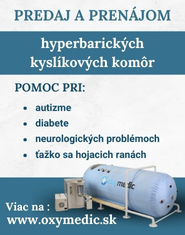Merck Receives Approval (Updated Registration) for Mavenclad (Cladribine Tablets) in AustraliaDARMSTADT, Germany, December 7, 2017/PRNewswire/ (TASR-OTS)Not intended for U.K./U.S. based media First treatment in relapsing-remitting multiple sclerosis (RRMS) to show sustained clinical efficacy for up to 4 years with a maximum of 20 days of oral treatment over 2 years Updated registration follows recent approval of Mavenclad in Europe and Canada Merck, a leading science and technology company, today announced that the Therapeutic Goods Administration (TGA) has updated the registration including the indication, dosing and safety information of MAVENCLAD® (cladribine tablets) for the treatment of relapsing-remitting multiple sclerosis (RRMS) in Australia. As a result, MAVENCLAD® is now approved for the treatment of relapsing-remitting multiple sclerosis (RRMS) to reduce the frequency of clinical relapses and to delay the progression of physical disability. Following completion of 2 courses of treatment, no further treatment is required in years 3 and 4. The changes bring the Product Information[1] in line with the latest clinical trial evidence supporting MAVENCLAD®. MAVENCLAD® is the first and only oral short-course treatment to provide efficacy across key measures of disease activity in patients with RRMS, including disability progression, annualized relapse rate and magnetic resonance imaging (MRI) activity."Multiple sclerosis is a debilitating disease where new treatments are needed," said Professor Bill Carroll, Clinical Professor of Neurology at the University of Western Australia and the Perron Institute, and a consultant neurologist at the Sir Charles Gairdner Hospital as well as President-elect of the World Federation of Neurology. "Mavenclad will be a welcomed treatment option for patients with the relapsing-remitting form of MS. As an oral therapy taken in two short courses over a 2-year period, Mavenclad will be convenient for all eligible patients in Australia, including those who may not live close to their treating healthcare professional.""We are pleased the Therapeutic Goods Administration has updated the Product Information for Mavenclad in Australia to reflect additional clinical data," said Simon Sturge, Chief Operating Officer at the biopharma business of Merck. "Our next step is to work closely with the Australian government to bring this treatment advance to patients as quickly as possible."MAVENCLAD® has been subject to a comprehensive clinical development program in multiple sclerosis (MS), that includes more than 10,000 patient years of data with over 2,700 patients included in the clinical trial programs,[2] and up to 10 years of observation in some patients.MAVENCLAD® is a selective immune reconstitution therapy[3],[4] which simplifies treatment administration, by giving patients just 2 short annual courses of tablets with a maximum of 20 days of treatment over 2 years providing a lasting treatment benefit of at least 4 years. MAVENCLAD® works by selectively targeting B & T lymphocytes followed by a distinct pattern of lymphocyte reconstitution, without continuous suppression of the immune system.[5]This registration update for MAVENCLAD® in Australia follows the recent approval of MAVENCLAD® in Europe and in Canada. MS affects more than 23,000 Australians with most people diagnosed between the ages of 20-40.[6] Merck plans additional filings for regulatory approval in other countries, including the United States.MAVENCLAD® Minimum Product Information: Indications: MAVENCLAD is indicated for the treatment of relapsing-remitting multiple sclerosis (RRMS) to reduce the frequency of clinical relapses and to delay the progression of physical disability. Following completion of the 2 treatment courses, no further cladribine treatment is required in years 3 and 4. Re-initiation of therapy after year 4 has not been studied. Contraindications: Patients with hypersensitivity to cladribine or to any of the tablet excipients, infected with the human immunodeficiency virus (HIV), active chronic infections (tuberculosis, hepatitis), immunocompromised patients, including patients receiving immunosuppressive or myelosuppressive therapy, moderate or severe renal impairment (creatinine clearance < 60 mL/min), during pregnancy and breastfeeding. Precautions: Haematological monitoring is required prior to and during therapy. Lymphopenia; Infections; Malignancies; Switching to and from MAVENCLAD treatment; Renal impairment; Hepatic impairment; Fructose intolerance; Effects on fertility (incl. male patients), Use in pregnancy (Category D) and lactation; Use in Paediatric or Elderly; Carcinogenicity, Genotoxicity. Interactions: 3 hours interval required for administration of other oral medicines. Concomitant treatment with immunosuppressive or myelosuppressive agents is contraindicated; must not be initiated within 4 to 6 weeks after vaccination with live/live-attenuated vaccines. Recommendations to avoid co-administration with potent ENT1, CNT3 and ABCG2 transporter inhibitors. Adverse reactions: Very Common:Lymphopenia (may be severe, Grade 3 or 4). Common: Rash, alopecia, oral herpes, dermatomal herpes zoster, decrease in neutrophil count. Dosage and administration:Haematological and infections screening criteria for starting and continuing therapy have to be met before initiating MAVENCLAD therapy or administering any subsequent treatment course. The recommended cumulative dose of MAVENCLAD is 3.5 mg/kg body weight over 2 years, administered as 1 treatment course of 1.75 mg/kg per year. Each treatment course consists of 2 treatment weeks, one at the beginning of the first month and one at the beginning of the second month of the respective year. Each treatment week consists of 4 or 5 days on which a patient receives 10 mg or 20 mg (one or two tablets) as a single daily dose, depending on body weight. Patients should receive no more than 2 treatment courses over two consecutive years. The recommended dose should not be exceeded. Following completion of the 2 treatment courses, no further cladribine treatment is required in year 3 and year 4. Re-initiation of therapy after year 4 has not been studied.Based on approved PI dated 5 December 2017






